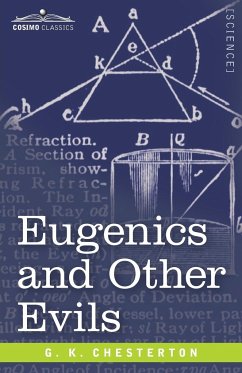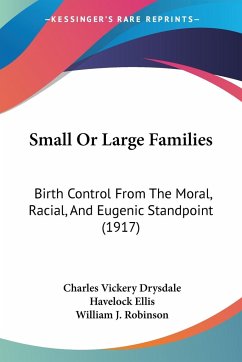"Eugenics itself, in large quantities or small, coming quickly or coming slowly, urged from good motives or bad, applied to a thousand people or applied to three, Eugenics itself is a thing no more to be bargained about than poisoning." -G. K. Chesterton, Eugenics and Other Evils Eugenics and Other Evils: An Argument Against the Scientifically Organized State (1922) was written by G. K. Chesterton as an attack on a bill being debated by the British parliament that would have legalized eugenics. This bill was the culmination of a campaign instigated by Sir Francis Galton and H. G. Wells, among others. They represented a number of contemporary intellectuals who believed the government should sterilize people deemed "mentally defective." In his book, Chesterton, who was strongly motivated by Christian theology, argued that spiritual principles were more important than scientific ones in the governance of human affairs. Ultimately, the bill failed to pass by a vote of 167 to 89.
Hinweis: Dieser Artikel kann nur an eine deutsche Lieferadresse ausgeliefert werden.
Hinweis: Dieser Artikel kann nur an eine deutsche Lieferadresse ausgeliefert werden.








